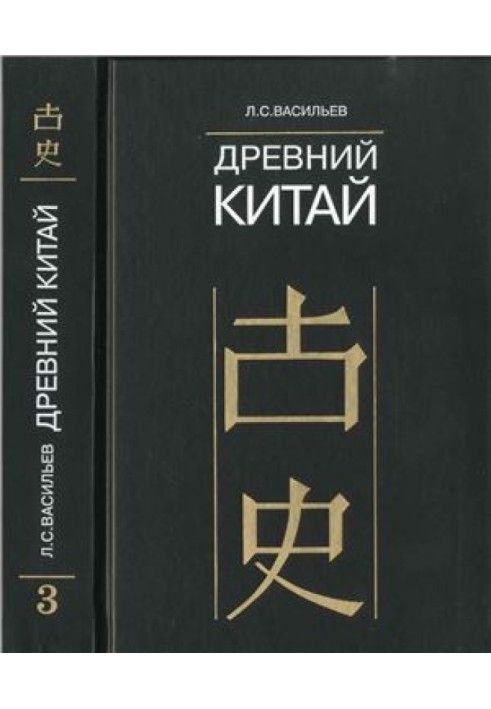Ancient China. Volume 3: Zhanguo Period (V-III centuries BC)
 Instant download
Instant download
after payment (24/7)
 Wide range of formats
Wide range of formats
(for all gadgets)
 Full book
Full book
(including for Apple and Android)
The final volume of the three-volume “Ancient China” is dedicated to the last period of the Zhou dynasty, the so-called Zhanguo (“Warring States”) era. It tells about the political history of this time (V-III centuries BC), about the art of diplomacy, about the reforms that contributed to the strengthening of the previously backward kingdom of Qin, which, having defeated its rivals, founded the first empire in the history of China. Primary attention in the volume is paid to changes in the character and appearance of ancient Chinese society, primarily to the process of its radical de-feudalization, as well as the development of the main schools of ancient Chinese thought, which, especially Confucianism, formed the basis for the successful development of Chinese civilization up to the present day.
< p>Contents:History of kingdoms during the Zhanguo periodWang's domainKingdom of Lu and Small WeiKingdom of SongKingdom of ZhengKingdom of ZhaoKingdom of HanKingdom of QiKingdom of YanKingdom of ChuKingdom of QinWars, politics and diplomacy in the struggle for the Celestial EmpireAristocracy, state and wars in ancient ChinaDefeudalization, reducing the role of the nobility and changing the nature of warsWars and kingdoms of Zhanguo without the Zhou nobilityStatus of high-ranking political figures Zhangguo Ya Su and the attempt to create a coalition against Qin Zhang And political and diplomatic activities in favor of the QinPolitical and diplomatic efforts and successes of the Qin at the turn of the 4th - 3rd centuries. and at the beginning of the 3rd century. BC e.Qin and the politics of other kingdoms at the end of the Zhanguo periodTransformation of structureIron Age and innovations in productionMarket, privatization and commodity-money relationsOrganization of administration in villages and citiesSocial-clan transformationChanges in the administrative system (from fiefs to districts)Strengthening the power of rulersFormation of the intellectual foundations of a new era (the beginning of the Axial Age at the turn of Chunqiu - Zhanguo)Confucius and his teachings (reform activities of the Teacher)Ordering relations in the family and societyCult of knowledge, exaltation of the smart and capableDesacralization of the sacred ( evolution of the concept of de) Sacred and desacralized (ritual rites and rules) New ethics of Confucius Streamlining the administration system Technology and the art of managing people Philosophy of Confucius Confucius and his ideas in Zhanguo Proto-socialism of Mo Tzu and egocentrism of Yang Zhu Doctrine of the state About universal love and mutual assistance Mo Tzu about mourning, music and warsHeaven, spirits, fatalism and Confucianism in the treatise “Mo Tzu”The role of Mo Tzu in development of ancient Chinese thoughtYang ZhuThe essence of the doctrine of Yang ZhuMo-tzu and Yang ZhuLegists (fa-jia) in ancient Chinese thoughtPrehistory of legalismEarly legalists (Li Kui, Wu Qi)Authoritarianism in the doctrine of Shen Bu-haiSima Qian about Shang Yang (Gong-sun Yang)"Shang-jun Shu" about hard legalism; Ideas and reforms of Shang Yang; Legalism of market economy in "Guanzi" Legalism of Han Feizi; Elements of mysticism and metaphysics in ancient Chinese thought before the advent of Taoism; Specifics of early religious ideas of the Chinese before the Zhanguo period; Ancient Chinese mantics; Fortune telling according to the shi system; Cosmology, calendar, astronomy, astrology; superstitionThe origins of Chinese metaphysics. Zou YanAncient Indian metaphysicsTaoist philosophyQi and jing-qi; life, death, longevity and immortality in Taoist thoughtCosmogony of TaoistsMetaphysics and mysticism: Emptiness and heartEthics and social policy of TaoismParables of “Zhuang Tzu” and “Le Tzu”Taoists about Confucius and his teachingThe Riddle of the Old SageConfucianism after Confucius. Mencius and XunziMengzi and his treatiseSocial and political positions of MenciusConfucian ethics in the interpretation of MenciusXunzi and his treatisePhilosophy and anthropology of XunziSocio-ethical and political views of XunziDoctrine of Xunzi and legalismMengzi and Xunzi as Confucians Consolidated and systematized texts (“Zhouli”) and the tendency towards syncretism and synthesis at the end of Zhou Systematized meta-construction of “Zhouli” Ministry of Heaven and Earth Ministry of Spring, Summer and Autumn “Kao-gong ji” General scheme of “Zhouli” - super ideologemeConfucianism and legalismPhilosophy Taoists and Chinese traditionPhilosophical syncretism in ancient ChinaTransformation of old and the formation of new traditions (lifestyle, worldview, mentality) Late Zhou intellectuals as the main creators of the new (new combined with ancient tradition) The contribution of Taoism to the ancient Chinese tradition Myths and mythology in Late Zhou China Formation of a new view of history Rhetoric and discussions Politics, diplomacy, rhetoric, tactics, strategy Ancient Chinese mentality Mentality and the specifics of thinkingOrder and HarmonyConclusionBibliographyIndexAbstract and some general conclusionsData sheet
- Name of the Author
- Леонид Васильев Сергеевич
- Language
- Russian




















